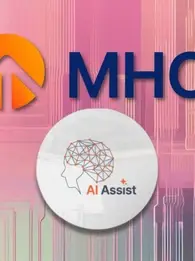
As capabilities in machine learning continue to grow, the adoption of artificial intelligence (AI) in enterprise technology follows an upward trend. According to a survey by Cognilytica, 90% of businesses within the next two years intend to implement AI technology. In 2020, we have now seen a number of possibilities in which AI can be used to improve businesses, but it is important to think about the ethical implications of using such a powerful technology.
Singapore’s National AI Strategy
AI has developed to the point in which machines are able to make decisions that are best for businesses, but the problem that comes with this is that many companies do not follow a framework for conducting ethical strategies. In January 2019, Singapore released the Model Artificial Intelligence Governance Framework and updated it with a second edition this year. While this framework is not legally binding, it does help to set an example for businesses to follow in Singapore’s hypothesised “AI Revolution”.
The most important feature of this update is to encourage businesses to adopt a risk-based approach when implementing measures by looking into factors that are imperative to building trust with stakeholders. This highlights the need for communication and further clarifies the “human-over-the-loop” role; humans should be supervisory in augmented decision making.
What this means for Singapore’s Businesses
Singapore’s AI strategy not only shows capabilities for the future but it also reflects the preparedness of the country in 2020. According to Oxford Insights, Singapore is the most prepared country in the world for implementing AI in public services. This is also reflected in the quantity of award winning AI solutions companies that exist in Singapore. For example, Unicsoft, a sustainable software development company that specialises in AI for startups, won three awards last year.
Beyond this, the framework itself has proved to be agreeable and beneficial for many companies. Within the one year of its inception, 15 businesses have already adopted it including global financial firms such as HSBC, Mastercard and Visa as well as smaller, local businesses, such as Singapore’s Ngee Ann Polytechnic.
Singapore’s AI has also seen a lot of investment in the last few years. Skymind Global Ventures recently launched a $800 million fund, planning to expand into the South East Asia region. Singapore leads the group in AI related research, meaning that the nation’s serious approach to AI will surely foster even greater funding.
If this trend in Singapore’s AI-ready strategy continues, the likelihood of startups and other businesses to follow the framework also seems certain. This could mean huge opportunities for Singapore’s startup market, meaning that it could be the nation to come out as number one in the AI race.
Why do API economies matter for businesses? Find out here.












